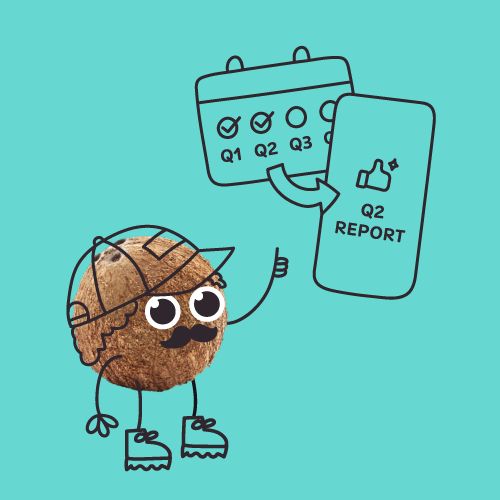We’re delighted to announce that we’ve won the final stage of Nesta’s Open Banking Challenge called Open Up. We’ve won £250k so far from the previous 3 stages. This final stage gives us another £200k to continue building an awesome product for our customers - freelancers, self-employed people and small business owners.
What is Open Banking?
Open Banking will create the biggest shakeup to how we manage money this century. For a long time, the banks in the UK have had a monopoly, maintaining a tight grip on our current accounts and our data. And the data is really powerful for automating all the manual tasks that we currently take for granted as entrepreneurs. Transaction data is the key to accounting and tax automation so, naturally, it's very important to us at Coconut.The UK government and the EU have realised how much this monopoly has prevented competition. So they are forcing banks to provide third party apps access to your transaction data, as long as you authorise it. They are also building a way for third party apps to make payments securely from your account.
How is Coconut going to use Open Banking?
If you read a bit about our vision, we’re in the business of freeing our customers from business admin by automating accounting and tax.We started by offering a current account for sole traders for a couple of reasons:
- Despite big gains recently, bank feeds just weren’t up to scratch in terms of speed or richness of data for us to reach the automation levels we wanted.
- The vast majority of sole traders - our first customer group - have been let down by the traditional banks who actively throw up hurdles to opening business current accounts for the smallest businesses.
Separating business from personal is the cornerstone of accounting and tax automation, so it made perfect sense to start here.
As we grow
As we start servicing limited companies (we've opened our first limited company account and are rolling out in December 2018) and grow our sole trader base, we see a massive opportunity from Open Banking in two areas:
- We can start capturing data from other bank accounts or credit cards to bring everything into one place, giving you a complete picture of your business finances.
- Where a customer already has a business current account setup, you can benefit from our accounting and tax automation without necessarily opening a Coconut current account. This means you can get started very quickly.
What does it mean for customers?
Most people or businesses won’t really notice that they are using open banking, because it’s just the mechanism to transfer data. But many will feel its benefits.In terms of features, here are a few things we’re thinking about:
- Mid-year on-boarding to capture your existing transaction data for your tax calculation.
- Aggregating all of your transaction data, so you can automatically make the most of tax breaks such as those related to working from home expenses that might go through a personal account.
- Rapid on-boarding if you already have a business current account you’re happy with and want to make the most of our accounting and tax tools.
- Making sure you set aside enough money for tax automatically into a savings account, whether you’re using a Coconut account or not.
Big stuff afoot
We see 2019 as the year for Open Banking. We’re excited to have been part of it from the beginning and over the moon to have won all 4 stages of Nesta’s Open Banking Challenge.More on this to come next year. And you can always check out our public roadmap where you can comment and vote on features. It's with your feedback that we will help shape the future of running a business for everyone, together.












